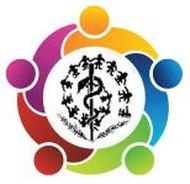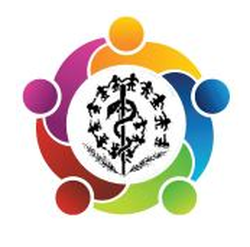My experience of JSS Health Centre, Bilaspur, India |
| It was another scalding hot day as we disembarked the train at Bilaspur Junction station. The journey from Kolkata had been comfortable, but long and we had whiled away the hours watching TV and chatting with the other passengers. One elderly gentleman was a retired engineer on his way to visit family who had shared lunch with us and debated politics with Alok, our resident small talker. As Dr Yogesh later told us in one of our many morning discussions, Indian trains had a way of drawing the deepest conversations about passenger’s lives. People often finish the journey having revealed secrets about themselves that their own friends and family may be unaware of. |
With the mercury sitting at a mild 45 degrees centigrade, we emerged from the air-conditioned train and were quite taken aback at how pristine the station was. This remote town had escalators, lifts and clean platforms unlike Kolkata's Howrah Junction that we had boarded at early that same day. After a few phone calls we coordinated the pickup with the driver JSS had sent for us and were on our way to the hotel we had booked in the centre of Bilaspur.
Due to the length of our stay and numbers, my three colleagues and I were unable to stay on campus for our time at JSS, which is recommended for visiting students. Instead we opted to stay in town at the (relatively cushy) Aananda Imperial. A business hotel designed for the surprisingly substantial number of white collar workers visiting Bilaspur as well as whichever local wedding or retirement party seemed to be happening in the moderately bustling town. In the morning, after breakfast, we were picked up by one of the JSS drivers and ferried to the housing estate where several of the consultants live before making a second transfer to the main campus of JSS for a total journey time of around 30 minutes. This morning commute quickly became one of my favourite parts of our stay as Alok, Tim, and I learnt about the history of JSS, its conception, its day to day operations as well as much broader topics such as health inequality and politics in India through lengthy discussions with Dr Yogesh.
With the mercury sitting at a mild 45 degrees centigrade, we emerged from the air-conditioned train and were quite taken aback at how pristine the station was. This remote town had escalators, lifts and clean platforms unlike Kolkata's Howrah Junction that we had boarded at early that same day. After a few phone calls we coordinated the pickup with the driver JSS had sent for us and were on our way to the hotel we had booked in the centre of Bilaspur.
Due to the length of our stay and numbers, my three colleagues and I were unable to stay on campus for our time at JSS, which is recommended for visiting students. Instead we opted to stay in town at the (relatively cushy) Aananda Imperial. A business hotel designed for the surprisingly substantial number of white collar workers visiting Bilaspur as well as whichever local wedding or retirement party seemed to be happening in the moderately bustling town. In the morning, after breakfast, we were picked up by one of the JSS drivers and ferried to the housing estate where several of the consultants live before making a second transfer to the main campus of JSS for a total journey time of around 30 minutes. This morning commute quickly became one of my favourite parts of our stay as Alok, Tim, and I learnt about the history of JSS, its conception, its day to day operations as well as much broader topics such as health inequality and politics in India through lengthy discussions with Dr Yogesh.
| If you have never visited India before or you haven’t had much experience on the roads there, this will be a quintessential experience. A narrow road carries traffic to and from Ganiyari with slow moving and larger vehicles blockading the whole lane, leaving only enough room for dangerous and erratic overtaking manoeuvres as you weave in and out of oncoming traffic. This led to several near misses as suicidal drivers on two wheelers passed too close for comfort considering the speed and lack of protection their vehicle afforded them. As we pulled into the campus for the first time I was taken aback by the size of the whole operation. The site is made of a pleasing red brick and I was interested to learn that even this choice was a conscientious decision. The buildings were designed as they were to reduce the paranoia and suspicion associated with modern healthcare by the population that frequented JSS. I was even more interested to learn that this medium sized clinic by western standards covered a population an order of magnitude greater than several of the largest hospitals in London combined. With a total coverage of 1.5 million residents of Chhattisgarh and Madhya Pradesh, the limited number of beds were stretched to the limit 100% of the time. |
| Outside both the outpatient centre and booking reception, stretched a large queue of patients hoping to be seen during that day’s outpatient clinic. This was not like any other queue I had ever seen. The waiting area for the OPD was more likened to a campsite than a doctor's waiting room. People had bedding, cooking utensils and food supplies and were often accompanied by several members of their family. This was a part of the patient journey (more literally than figuratively) that Dr Yogesh emphasised on an almost daily basis. The cost of travel and opportunity cost (in terms of income lost) of attending JSS was often too high for many of these people to attend until the illness had progressed to the point of being debilitating. People were having to wait in line for upwards of a week in addition to undertaking journeys taking in excess of days and costing more than the household’s entire weekly income. All this effort to be seen in the ever-surging outpatient department. The disruption this had on their lives was almost too much in some cases and often illness was left alone until it was too late. As someone trained in a system of relative plenty, this experience could only be described as a medical culture shock. |
|
During our time at JSS we were split between the OPD, surgical theatres, the wards, and ITU. Each department has a sliver of the resources that we can play around with in British hospitals yet they manage to achieve successful outcomes from their healthcare all the same. This highlights the essence of JSS, trimming the fat from the for-profit medical practices growing abundant in India and providing the highest quality care achievable at an almost unachievable low cost. The environment and in which JSS operates breeds a unique experience of medicine where you will see rare and, in some cases, unique conditions.
Our memorable experiences at JSS were not confined solely to working hours. One evening having missed the car back to town we were forced to take one of the auto-rickshaws back (another quintessential Indian experience). We had seen several of these outsized ‘autos’ on our commute to and from Ganiyari. They were far larger than normal autos found in the city centres of India’s major cities and we were also quoted a price far lower than expected. It later became obvious that we had been foolhardy and complacent with India and all was not as it seemed. These larger autos were not for private higher but actually acted more like buses ferrying people to Bilaspur. As we puttered down the road to town we picked up first a girl and her mother, followed by an elderly man carrying some luggage followed by a family of 5! All in all, 15 people fitted in this auto that was no larger than a small hatchback as we travelled down the aforementioned dangerous road to Bilaspur.
Our memorable experiences at JSS were not confined solely to working hours. One evening having missed the car back to town we were forced to take one of the auto-rickshaws back (another quintessential Indian experience). We had seen several of these outsized ‘autos’ on our commute to and from Ganiyari. They were far larger than normal autos found in the city centres of India’s major cities and we were also quoted a price far lower than expected. It later became obvious that we had been foolhardy and complacent with India and all was not as it seemed. These larger autos were not for private higher but actually acted more like buses ferrying people to Bilaspur. As we puttered down the road to town we picked up first a girl and her mother, followed by an elderly man carrying some luggage followed by a family of 5! All in all, 15 people fitted in this auto that was no larger than a small hatchback as we travelled down the aforementioned dangerous road to Bilaspur.
| It would be extremely cliché to say that visiting JSS changed my life but it would be a lie to disregard the impact it had on me. From the moment I started medicine I had the intention, as many of my selfless colleagues share, to take part in providing care to an underserviced community. I had assumed that I would join one of the common and famous institutions that specialise in such provision such as MSF but now having spent time in Chhattisgarh I have no doubt that I will make every effort to return. In the 17 years since its inception, JSS has made strides towards its key objectives. Yet I feel there is, as always in the medical field, huge room for improvement which, in part, drives my desire to return as I gain experience throughout my own medical career. And I hope that I can play a meaningful part in something as important as what JSS is aiming to achieve in the heartland of my country. |
FOJSS
UK Medical Student Internships Trainee Blog
Archives
February 2019
October 2017
May 2017
March 2017
January 2017


 RSS Feed
RSS Feed
